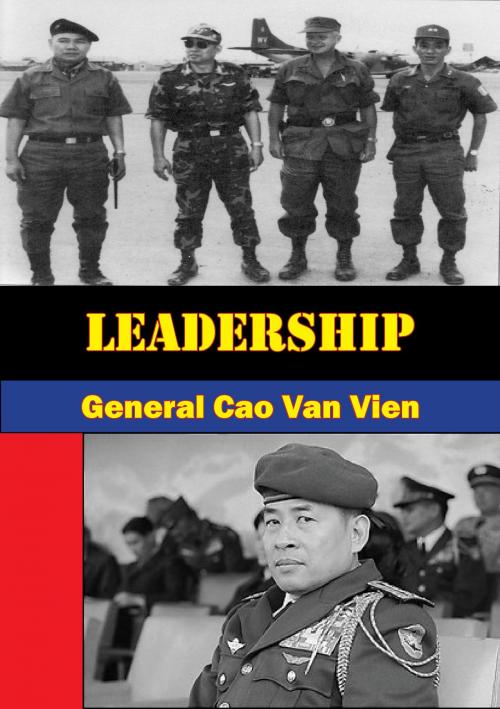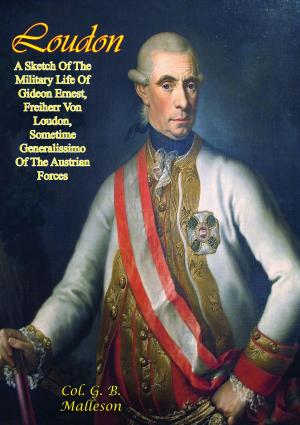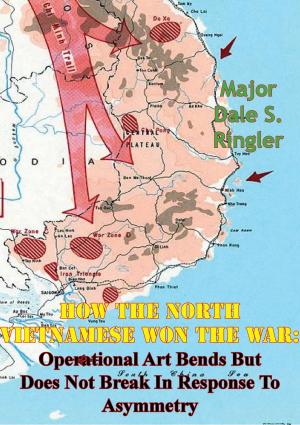| Author: | General Cao Van Vien | ISBN: | 9781786255167 |
| Publisher: | Normanby Press | Publication: | November 6, 2015 |
| Imprint: | Normanby Press | Language: | English |
| Author: | General Cao Van Vien |
| ISBN: | 9781786255167 |
| Publisher: | Normanby Press |
| Publication: | November 6, 2015 |
| Imprint: | Normanby Press |
| Language: | English |
This monograph forms part of the Indochina Monograph series written by senior military personnel from the former Army of the Republic of Vietnam who served against the northern communist invasion.
War and politics posed many challenges to South Vietnam’s military leadership. Unlike his counterpart in some countries, the Vietnamese military commander was not simply a leader of men in combat. Depending on the level of command, he had to play his part in national politics, be himself a grass roots politician, or engage in political warfare. To achieve success, he was often expected to possess several qualities not always required of a professional military leader. The requirements of leadership, therefore, sometimes transcended the conventional framework of accepted rules and principles.
Given these requirements and the fallibility of human nature, it had not always been easy to evaluate the total performance of our leadership. The dilemma we faced was that while professional competence during actual combat was a critical criteria, we could not tolerate deliberate aberrations in moral and social codes.
In my analysis of the successes and failures of our leadership, I have endeavored to be fair and objective. If I seem to be laudatory of some officers while critical of others, it is not my intention to embarrass any individual. Performance has been the sole basis for all of my evaluations.
This monograph forms part of the Indochina Monograph series written by senior military personnel from the former Army of the Republic of Vietnam who served against the northern communist invasion.
War and politics posed many challenges to South Vietnam’s military leadership. Unlike his counterpart in some countries, the Vietnamese military commander was not simply a leader of men in combat. Depending on the level of command, he had to play his part in national politics, be himself a grass roots politician, or engage in political warfare. To achieve success, he was often expected to possess several qualities not always required of a professional military leader. The requirements of leadership, therefore, sometimes transcended the conventional framework of accepted rules and principles.
Given these requirements and the fallibility of human nature, it had not always been easy to evaluate the total performance of our leadership. The dilemma we faced was that while professional competence during actual combat was a critical criteria, we could not tolerate deliberate aberrations in moral and social codes.
In my analysis of the successes and failures of our leadership, I have endeavored to be fair and objective. If I seem to be laudatory of some officers while critical of others, it is not my intention to embarrass any individual. Performance has been the sole basis for all of my evaluations.









![Cover of the book Thiet Gap! The Battle Of An Loc, April 1972. [Illustrated Edition] by General Cao Van Vien](https://www.kuoky.com/images/2014/august/300x300/9781782893844-YLYK_300x.jpg)
![Cover of the book U.S. Marine Operations In Korea 1950-1953: Volume I - The Pusan Perimeter [Illustrated Edition] by General Cao Van Vien](https://www.kuoky.com/images/2015/november/300x300/9781786254269-p1Qv_300x.jpg)

![Cover of the book DRIVE NORTH - U.S. Marines At The Punchbowl [Illustrated Edition] by General Cao Van Vien](https://www.kuoky.com/images/2015/november/300x300/9781786251503-gE5z_300x.jpg)

![Cover of the book The History of the French Revolution Vol I [Illustrated Edition] by General Cao Van Vien](https://www.kuoky.com/images/2016/november/300x300/9781787202801-U1vl_300x.jpg)
![Cover of the book A Lady’s Escape From Gwalior [Illustrated Edition] by General Cao Van Vien](https://www.kuoky.com/images/2014/june/300x300/9781782892274-491G_300x.jpg)